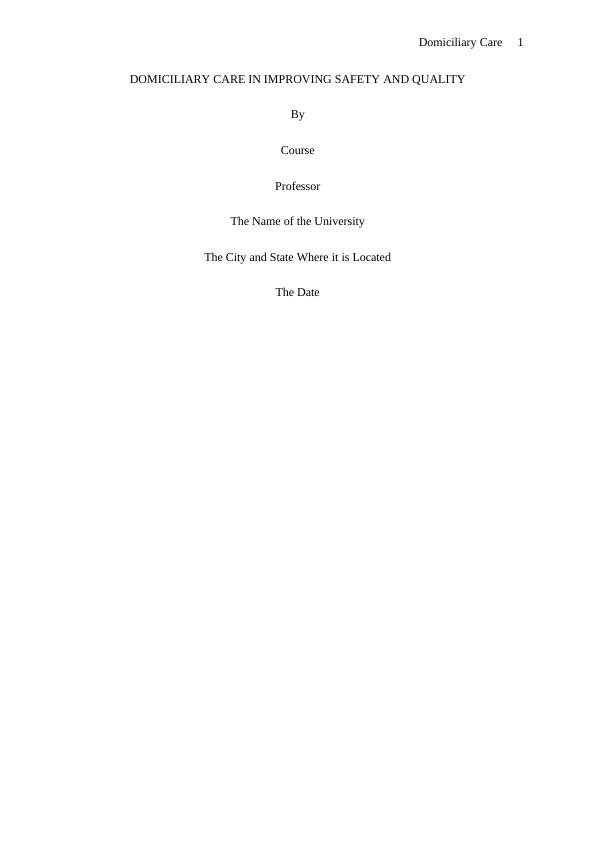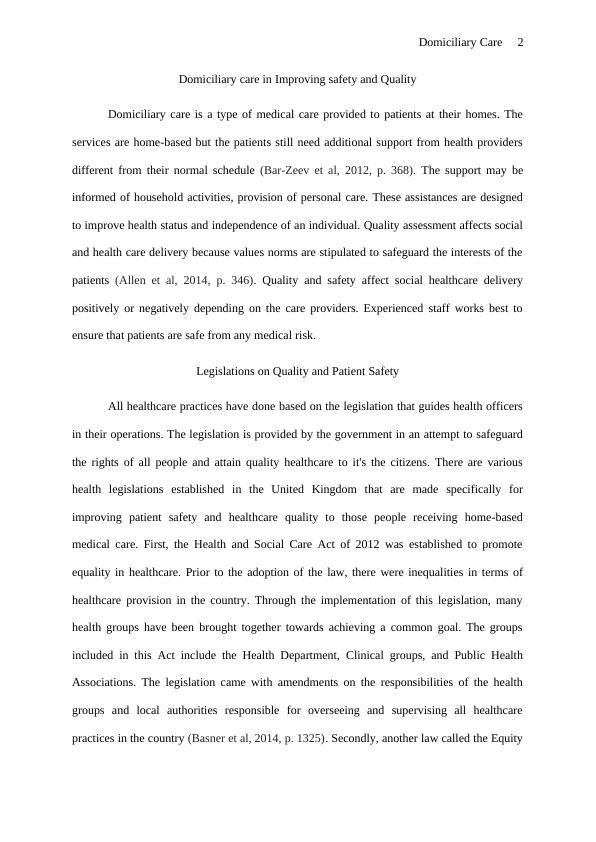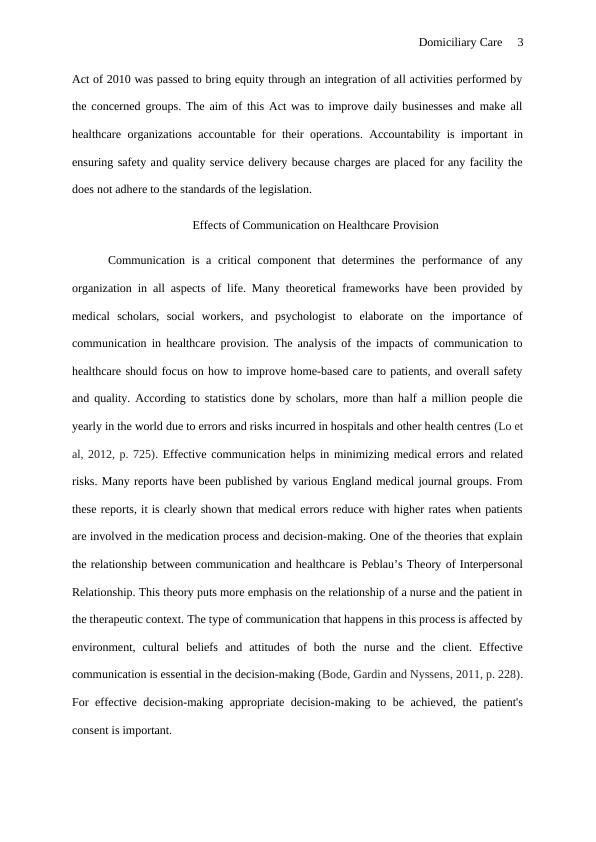Domiciliary Care in Improving Safety and Quality
7 Pages1476 Words159 Views
Added on 2023-04-11
About This Document
This article discusses the impact of domiciliary care on improving safety and quality in healthcare. It explores legislations, communication, professional values, and risk management. The importance of safe and effective practice and its impact on social care delivery is also highlighted.
Domiciliary Care in Improving Safety and Quality
Added on 2023-04-11
ShareRelated Documents
End of preview
Want to access all the pages? Upload your documents or become a member.
Unit 19 Reflective Approaches in Implementing Person Centred Practice
|17
|4777
|86
Developing As a Practitioner
|7
|1639
|41
Effective Communication in Health Care
|6
|1478
|34
Management of Domiciliary Services
|11
|3605
|38
Community Care: Care Practice in the Community
|10
|3263
|140
Recruitment and Selection in Health and Social Care Domiciliary Care Settings
|12
|3218
|86



